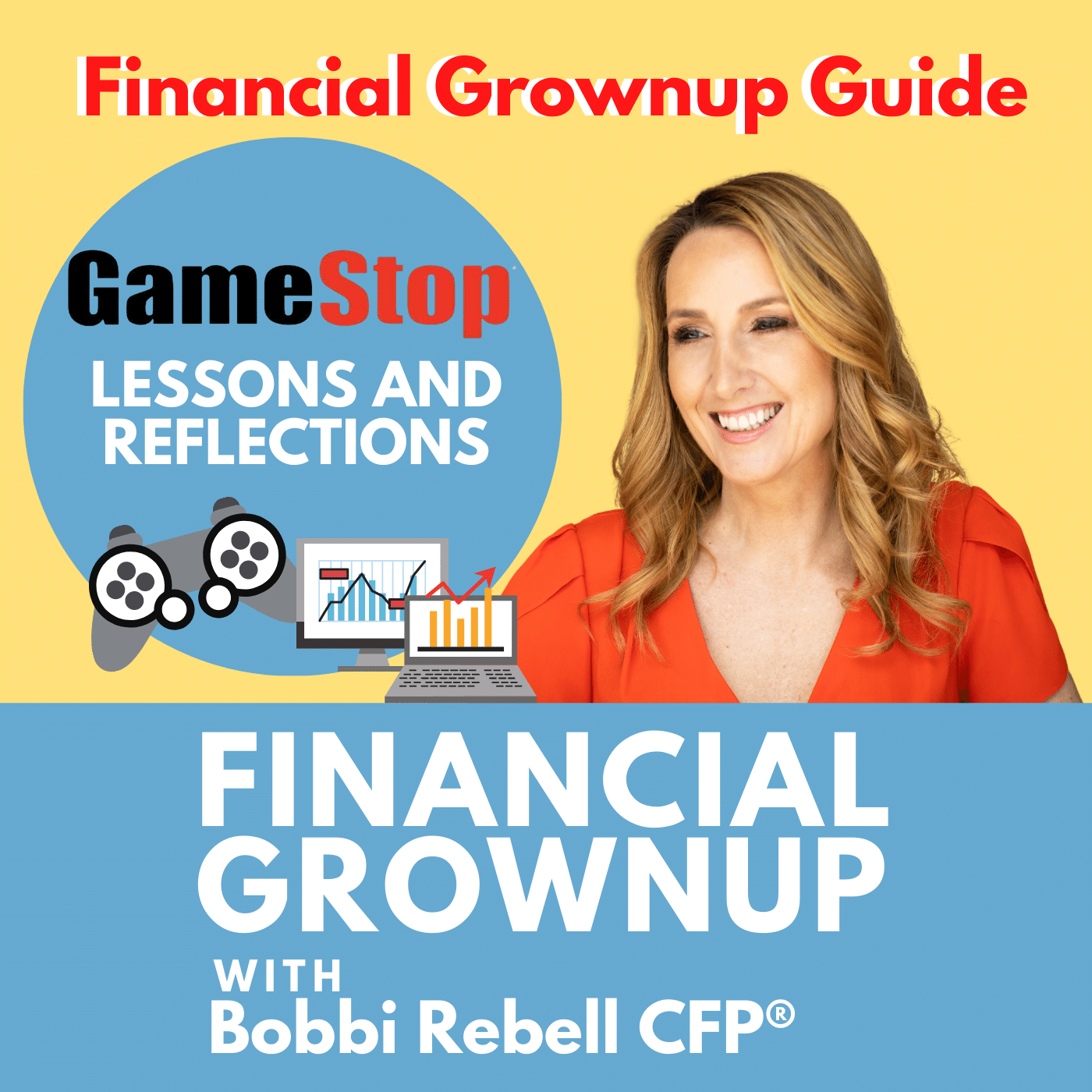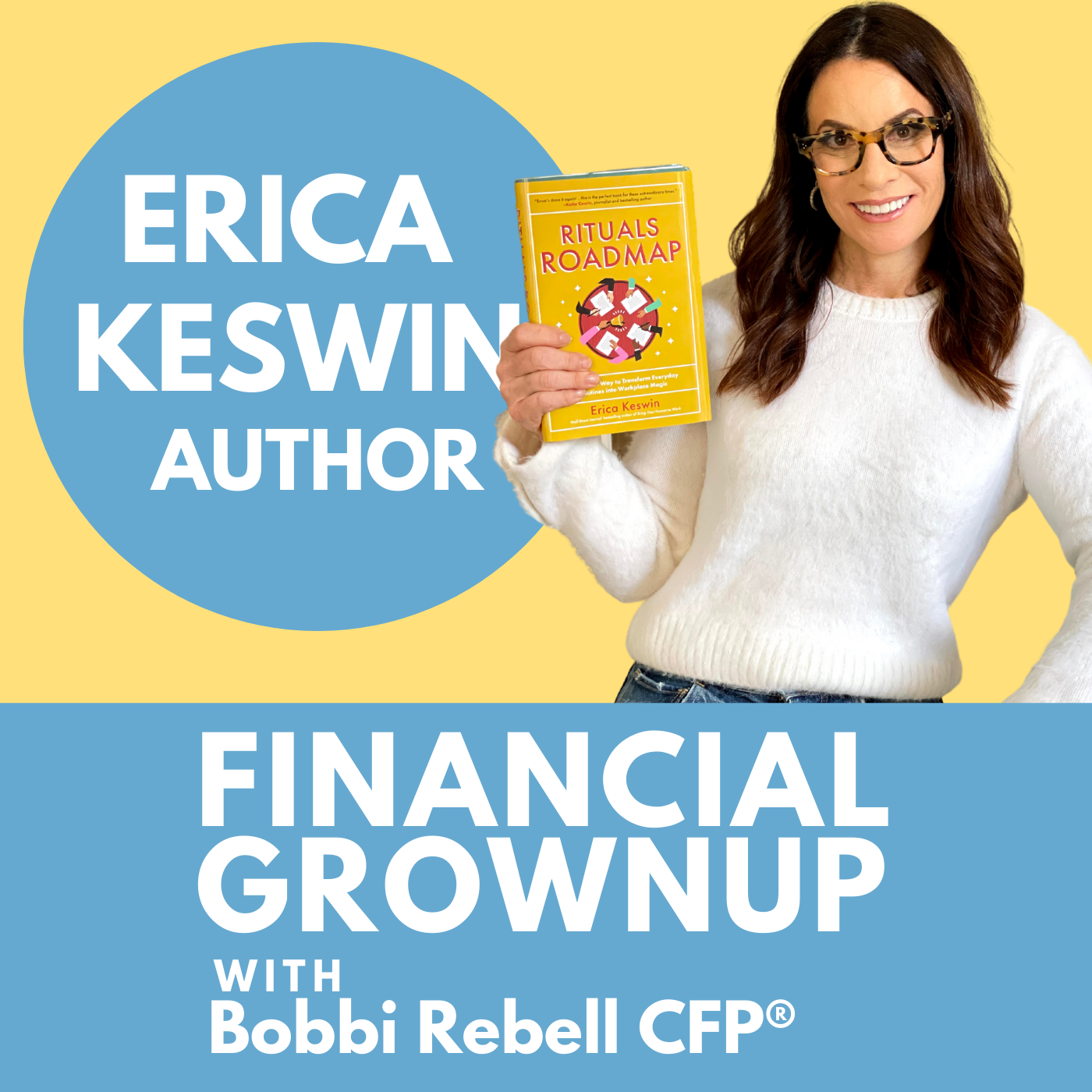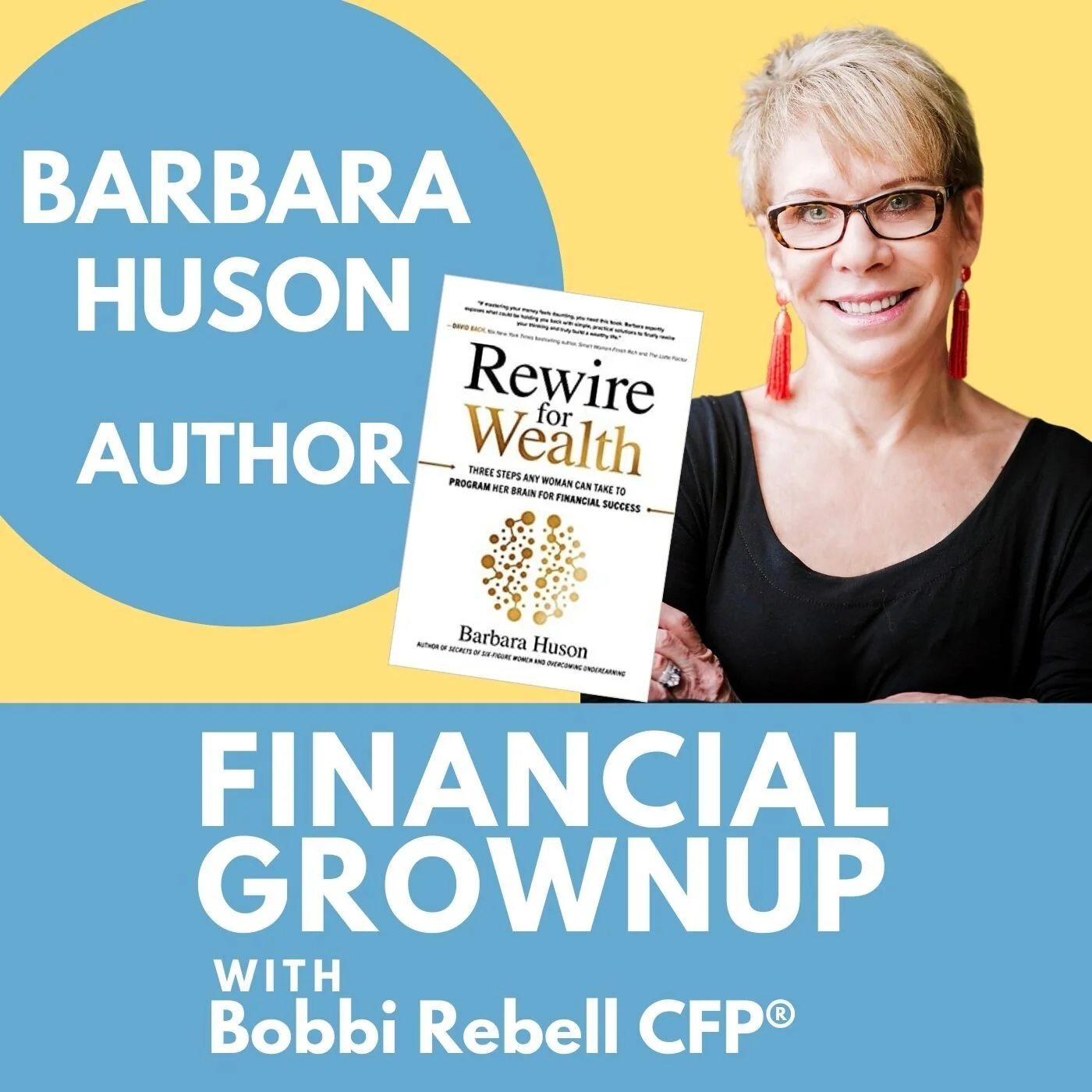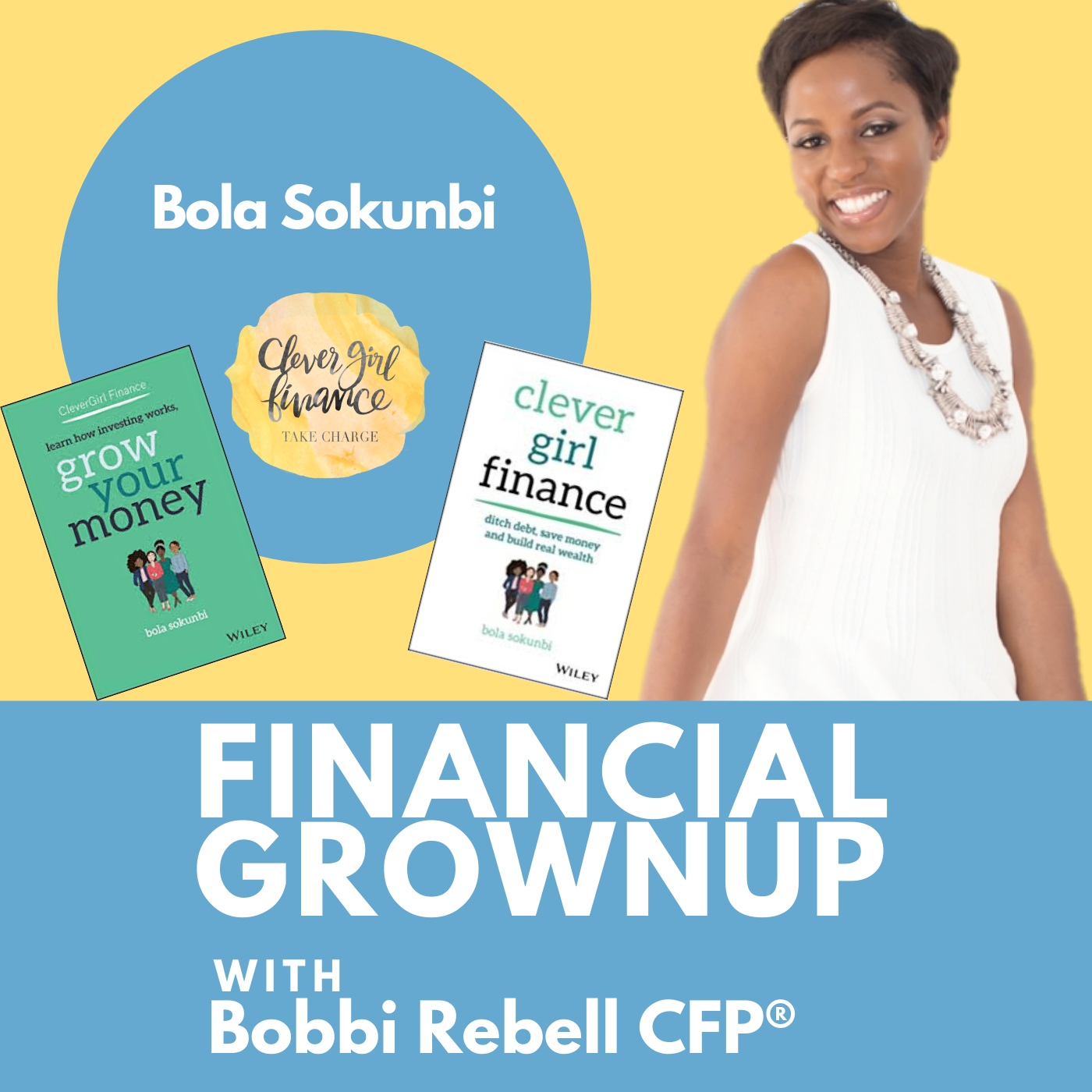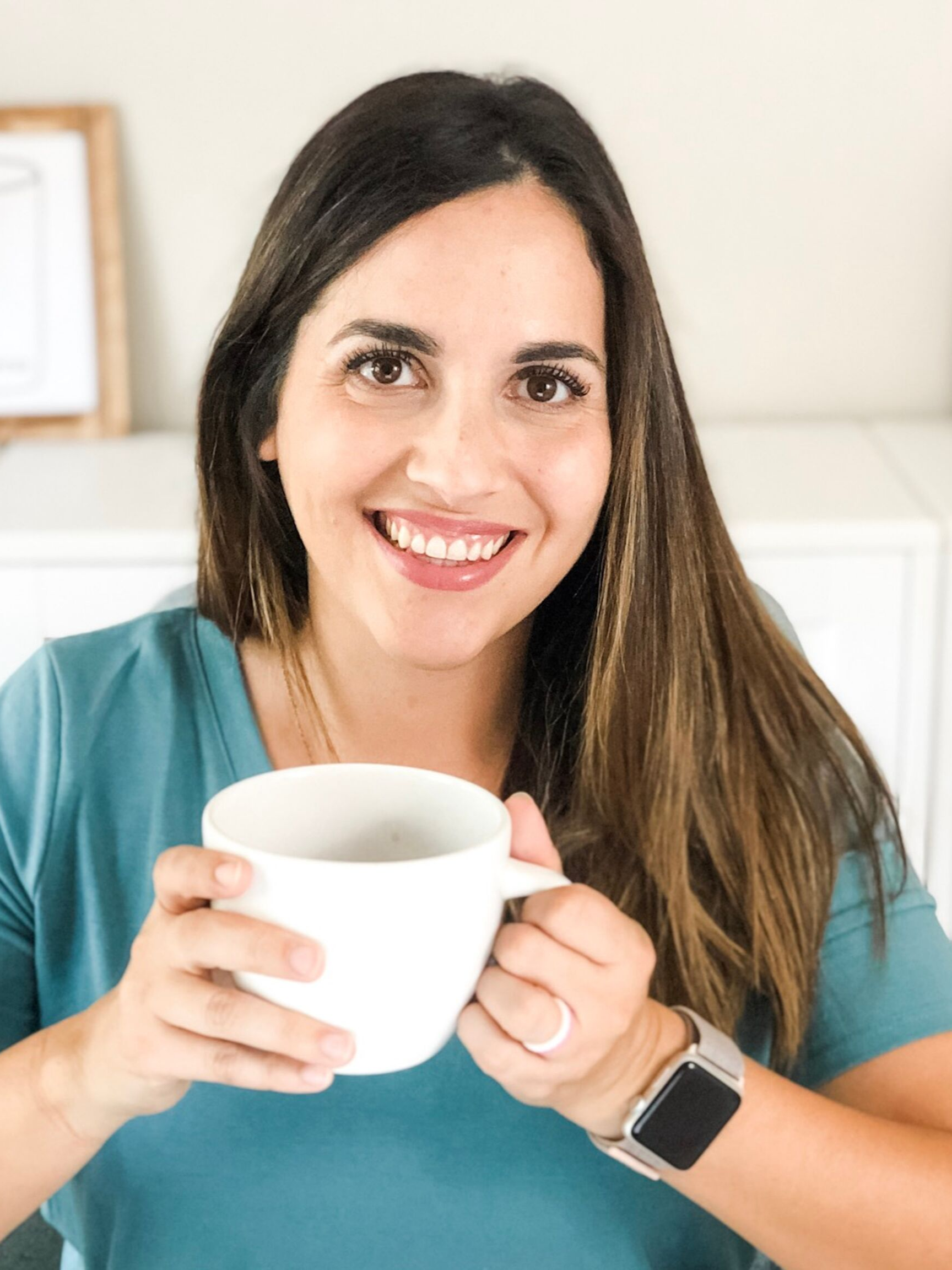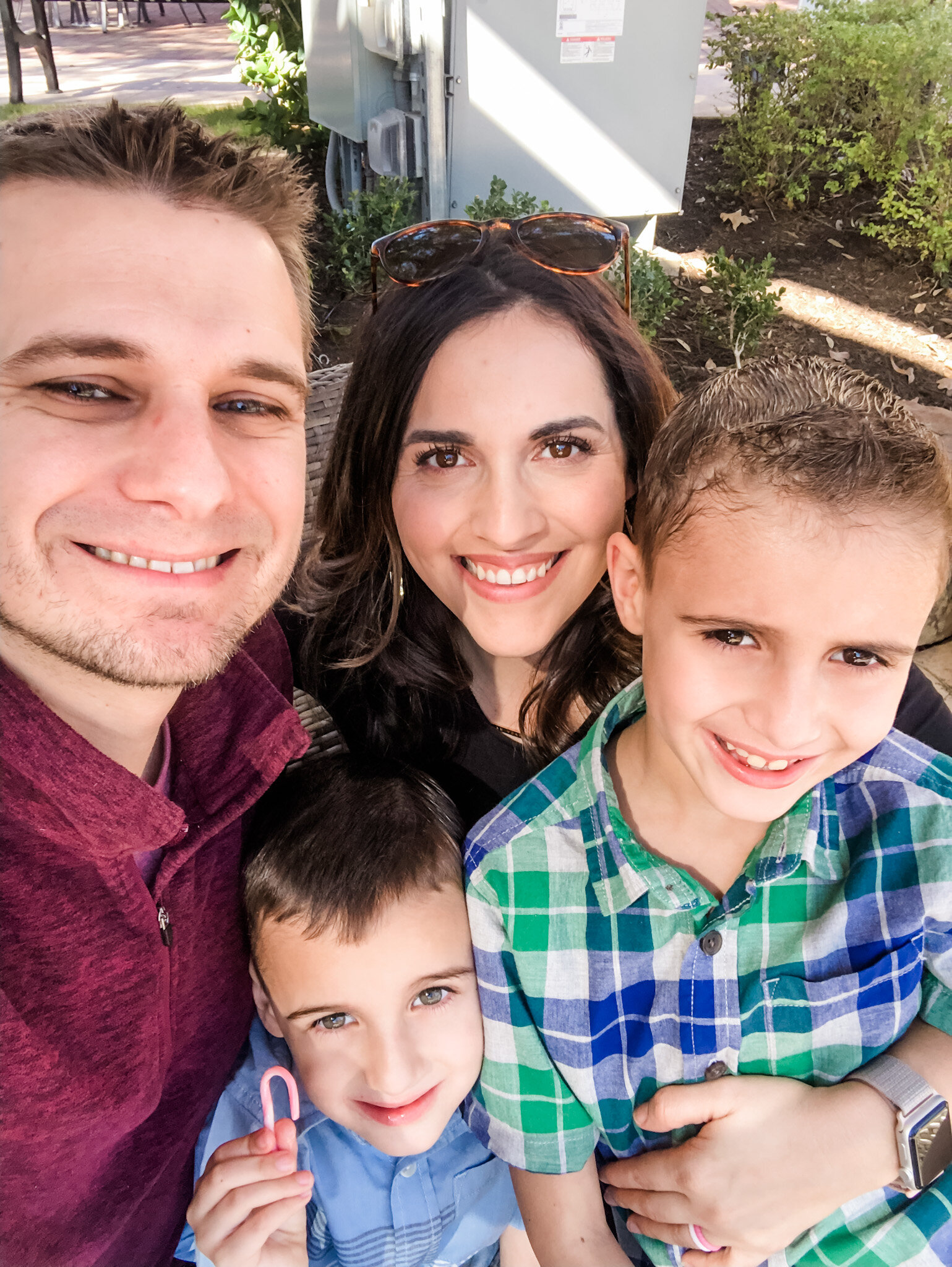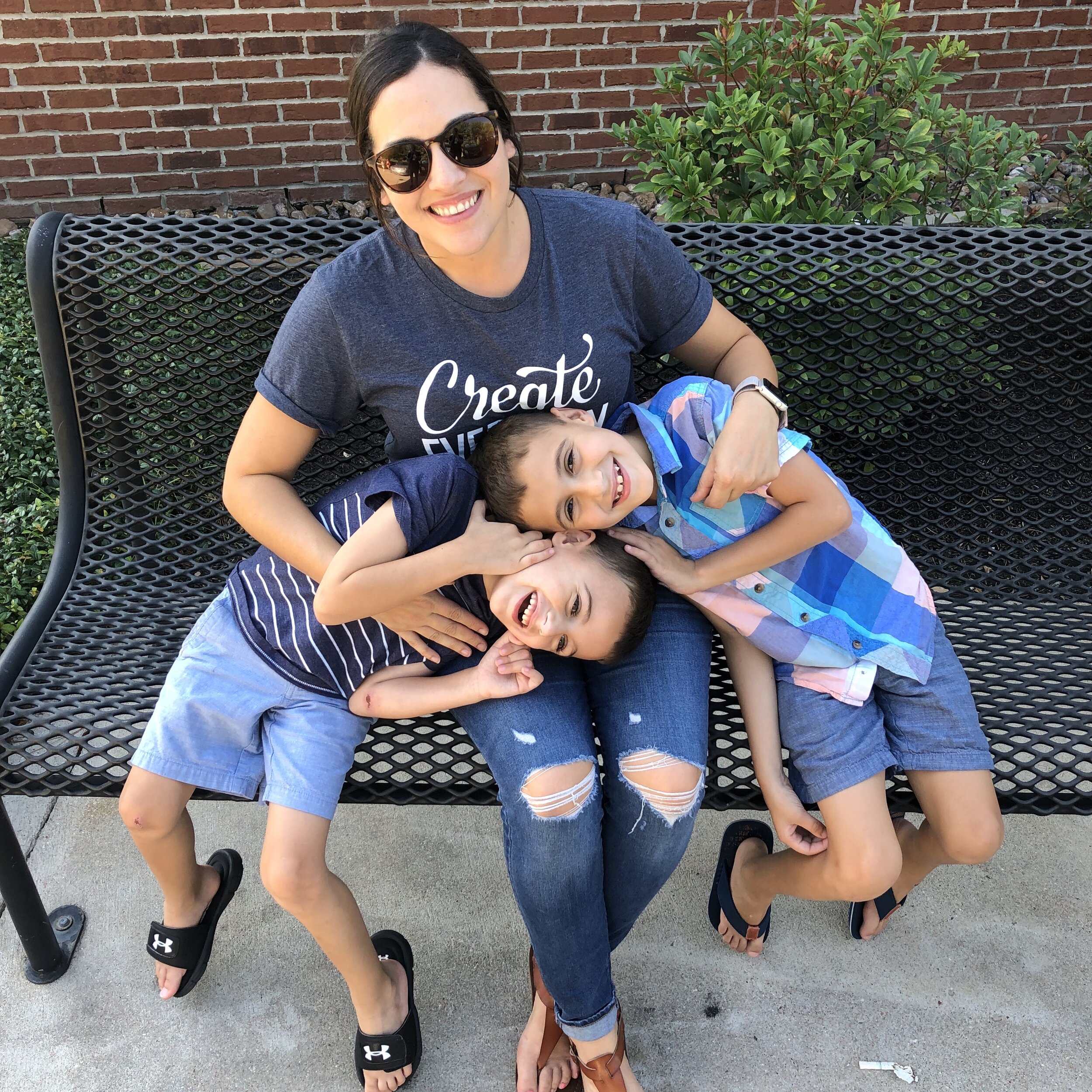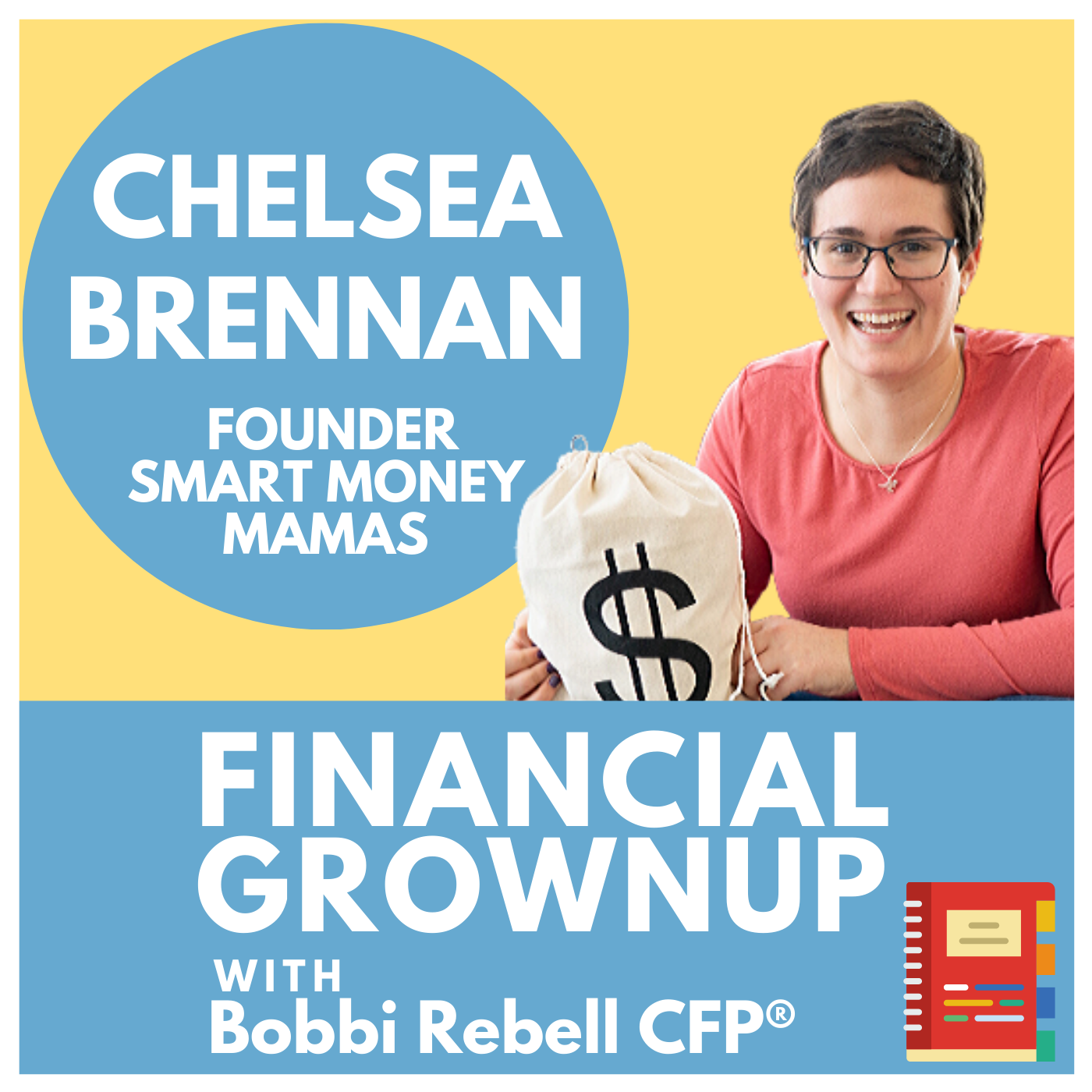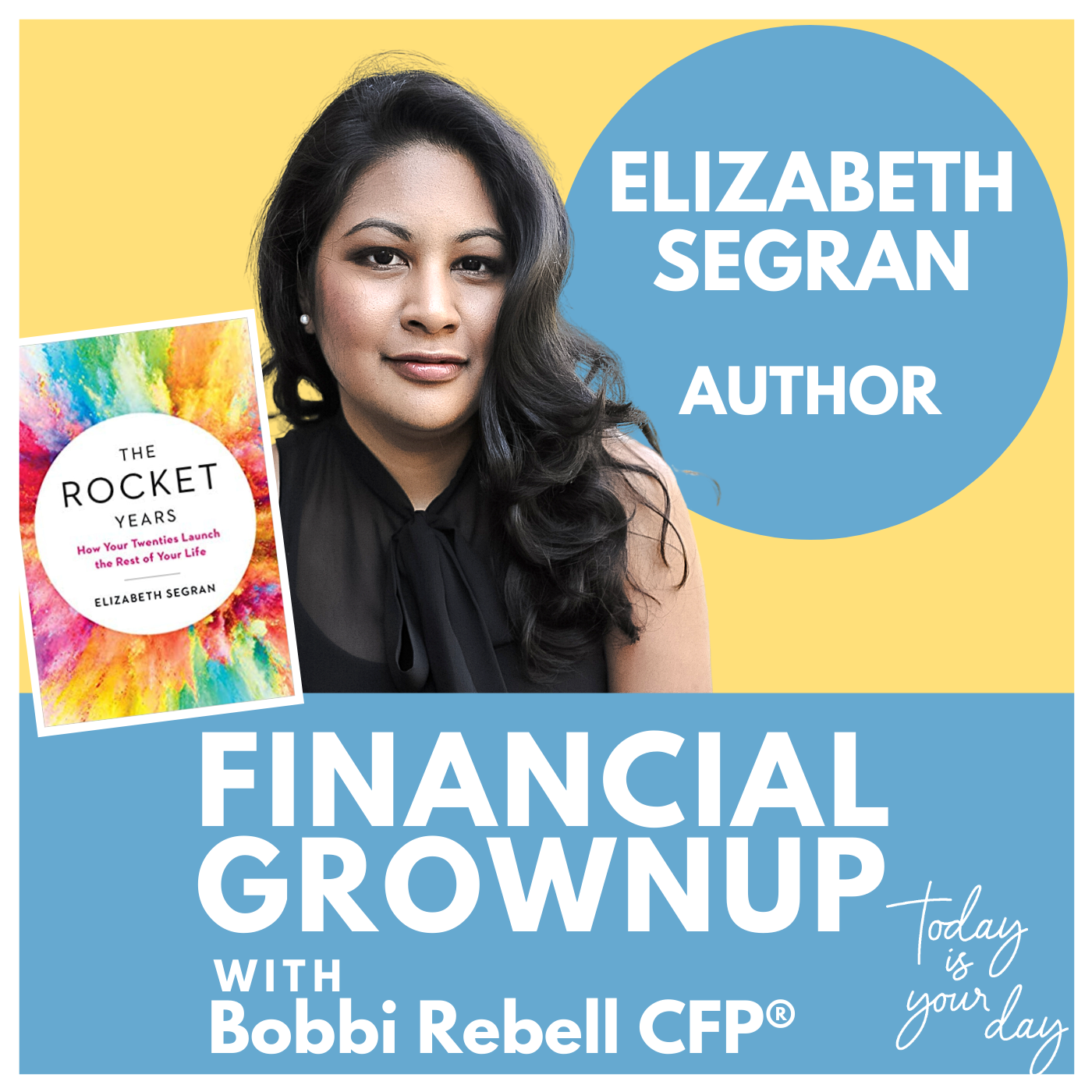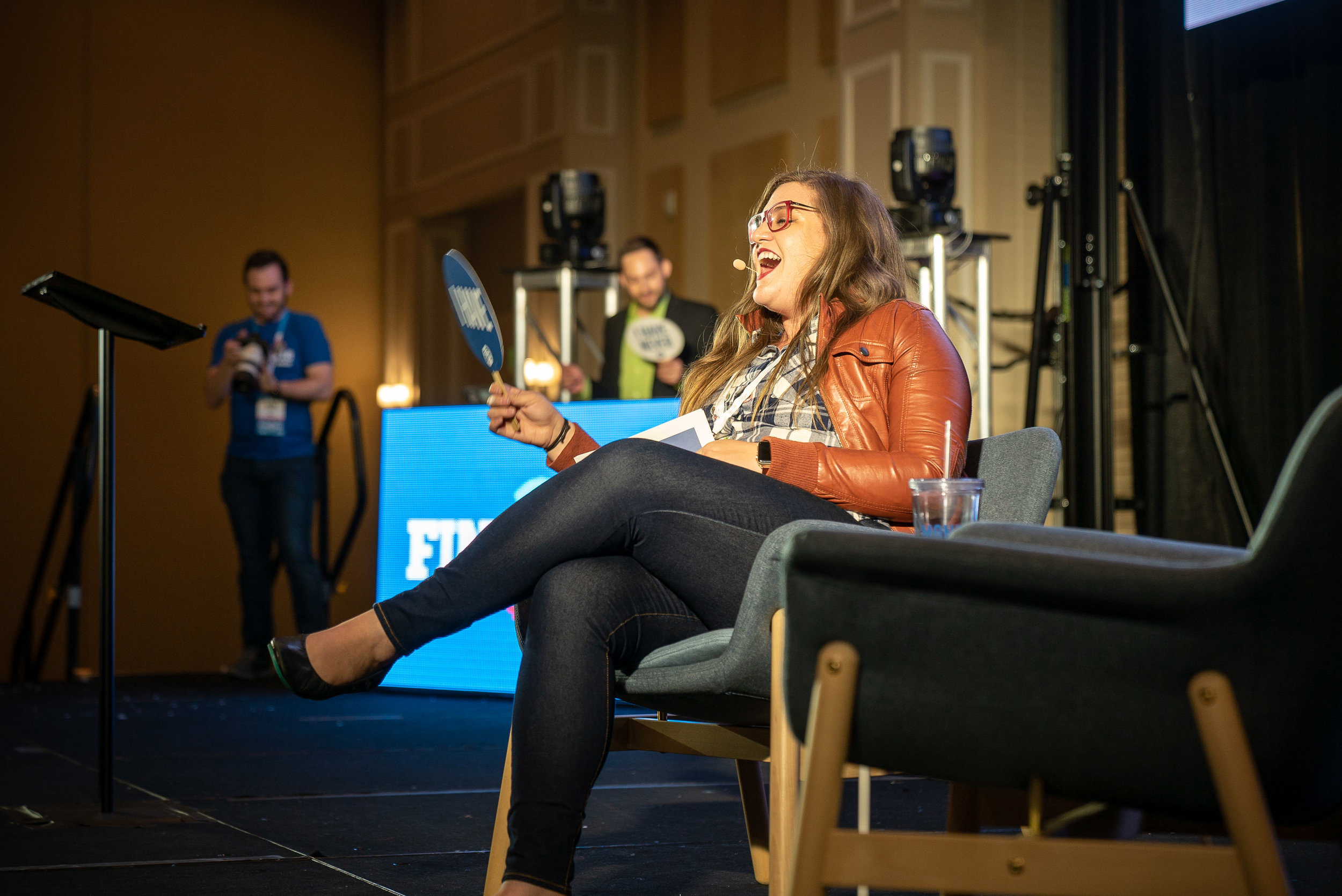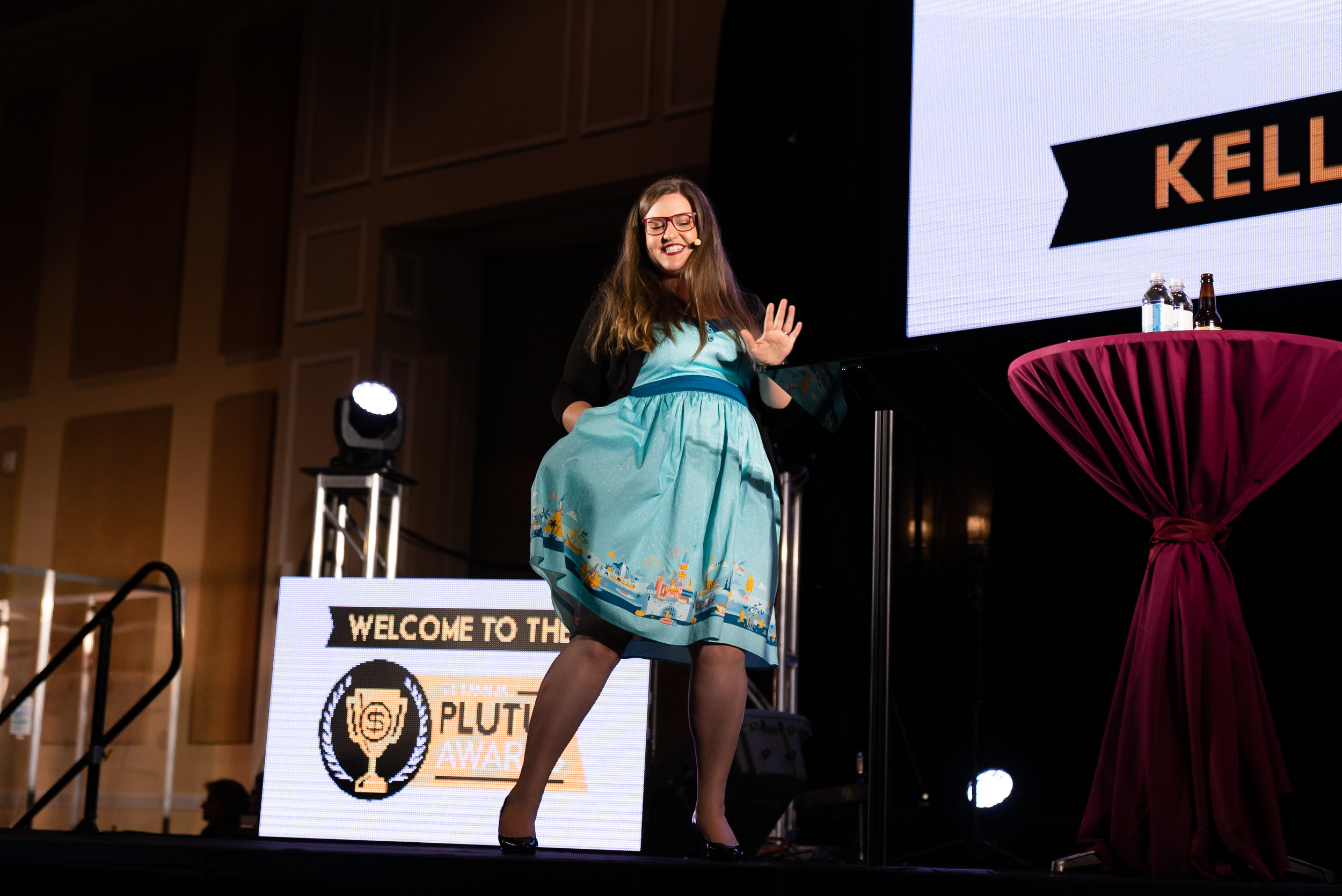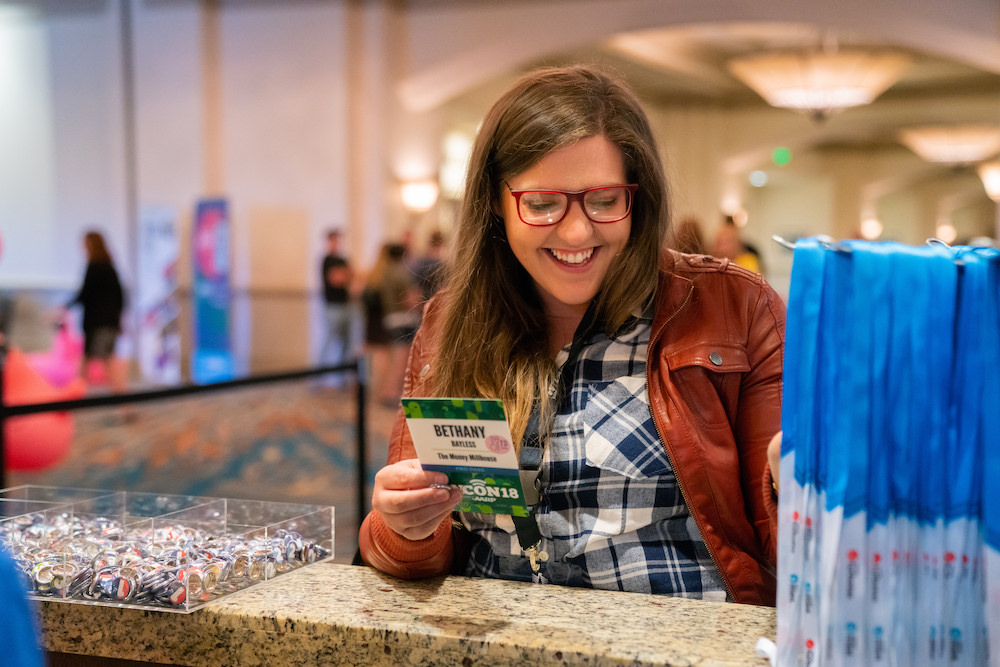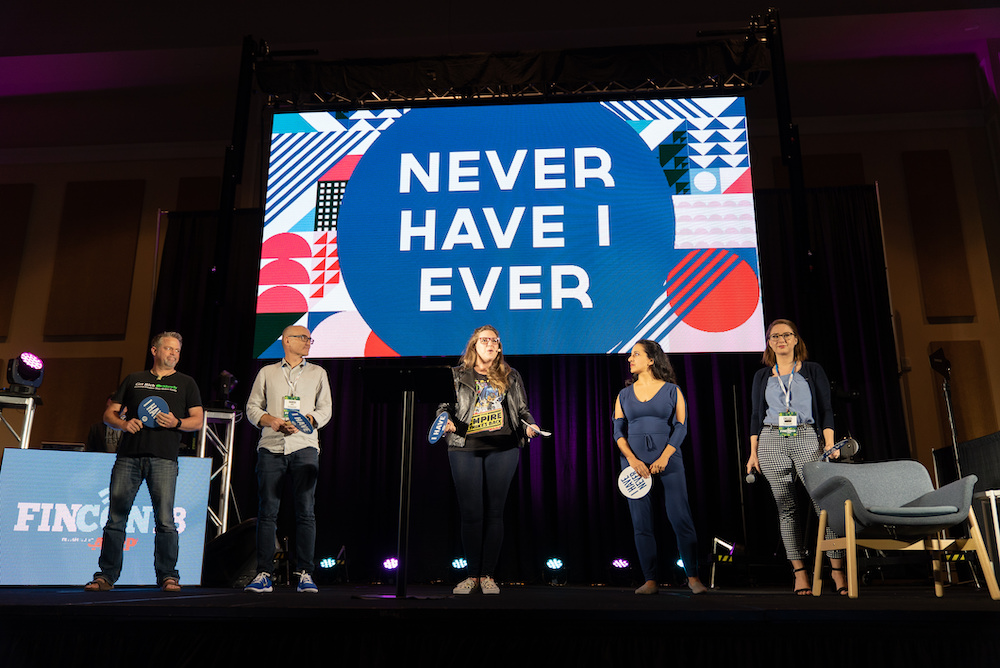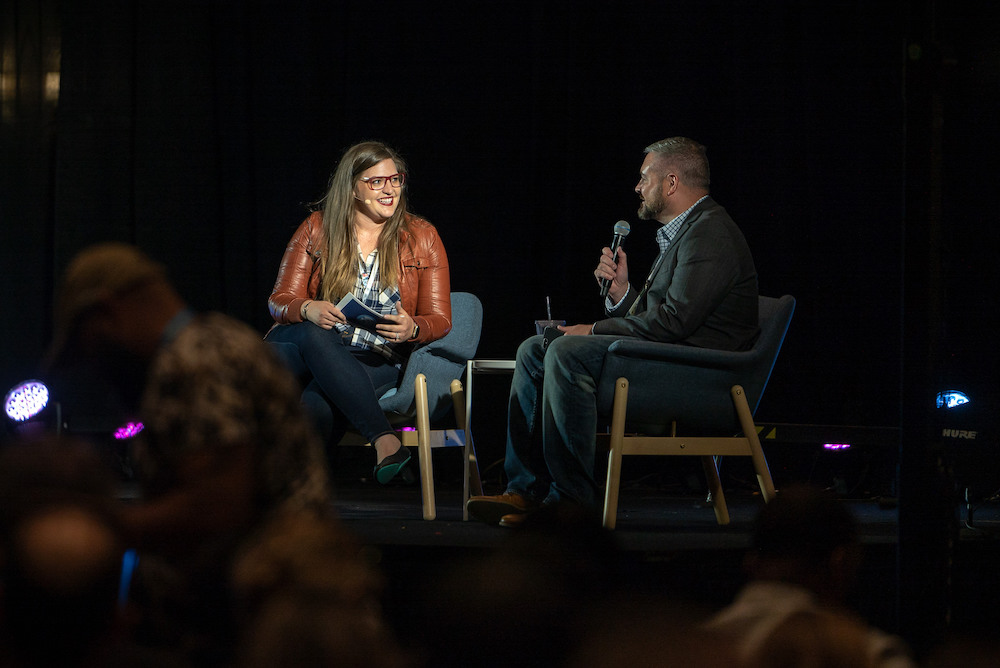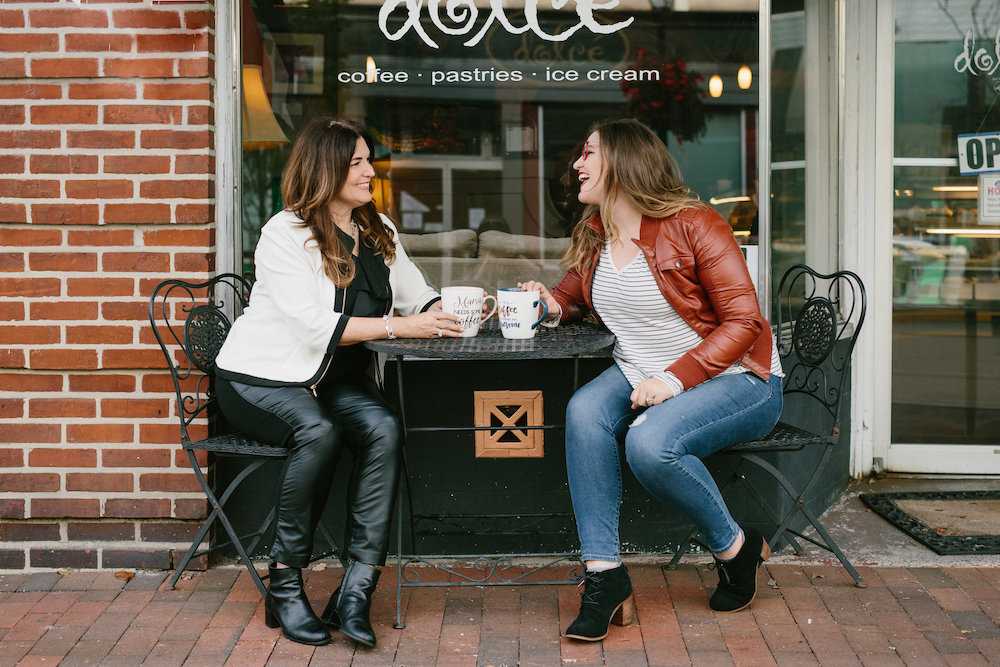In Jessica’s Money Story she shares:
-How she started writing her e first book, “They Wish They Were Us.”after having the idea for years.
-How she researched what is involved in selling a book to a publisher, including getting an agent
-How she kept her employer, Cosmopolitan Magazine informed and supportive of her book writing side hustle
-How an advance works for an author, including the tax implications
-What she wishes she knew about being an author and how much they are paid before she wrote and sold the book
-How she was able to adapt her schedule to both her full time job at Cosmopolitan Magazine, and writing books
-What you need to know about how a full time job works compared to being a self-employed author, including quarterly taxes
-When you should think about bringing in an accountant.
In Jessica’s Money Lesson you will learn:
-Why and how you should re-evaluate the way you think about money
-The best strategies to manage money when you are paid inconsistently in chunks
-How she and her partner adapted their spending during the pandemic
-How to resist it when people who care about you give you bad financial advice
Jessica’s Money Tip:
-Even if you live in a small space it can pay to buy in bulk during quarantine (and maybe after!)
-Think of non-traditional items that you would not have used as much at home- like buying wine by the case
-Tips about ordering groceries online including having the heaviest items delivered
Bobbi’s Financial Grownup Tips:
Financial Grownup Tip #1:
Jessica shared that she regretted not taking the time and advanced to understand the financial impact of having both a W2 job, that's a full time job, and self-employment income. Whenever you start a new venture that might bring in revenue, check in with a tax professional. If you are at a full-time job, read through those benefits, go to your HR website because the truth is many companies allow you to enroll in a free or low cost legal plan where you can get that kind of advice in a very affordable way.
Financial Grownup Tip #2:
Get a system going and understand that you might miss out on things if you want to reach your goals. Jessica was pretty candid about her commitment to her writing routine. To get to what you want to accomplish, most of us are going to have to be deliberate and to make room for something like writing a novel, when you aren't at your day job, you probably will have to give some things up.
Episode Links:
Follow Jessica!
Follow Bobbi!
Full transcript of show:
Bobbi Rebell:
Part of being a financial grownup is making sure you have a plan for how you spend your money and how you pay your bills. And now we have a new tool for that. It is called Splitit. It will take a lot of the stress away from those big purchases and really allow you to plan ahead. Here's how it works. You shop online and when you're ready to pay, you just choose Splitit at the checkout to split your payment on your credit card and pay over time. There's no interest, no application, no fees. It is fast and easy. So if you buy something for $500, you can split it into five smaller payments of $100 a month without any interest or fees. Much more manageable and you're in control of your costs. By turning your payments into smaller installments over time with no interest, Splitit gives you more spending power.
Bobbi Rebell:
I know I don't like to have to pay interest if I can avoid it. And I also don't want to always be opening new lines of credit. Split your payments and live big with the credit cards you already have go to splitit.com today. That's splitit.com.
Jessica Goodman:
When I was like a little kid, I was like, oh my God. You publish a book and you become a millionaire. That's just like how it works. But in reality, I learned that was not the case.
Bobbi Rebell:
You're listening to Financial Grownup with me, certified financial planner, Bobbi Rebell, author of How To Be a Financial Grownup. But you know what? Being a grownup is really hard, especially when it comes to money, but it's okay. We're going to get there together. I'm going to bring you one money story from a financial grownup, one lesson, and then my take on how you can make it your own. We got this.
Bobbi Rebell:
Hey friends, do you have a passion project or a side hustle? One you dream of doing full time one day and maybe getting to ditch that day job? Well, Cosmopolitan's Jessica Goodman had a passion project that she was quietly working on for years. And that was to be an author. Her debut novel, a murder mystery set in an elite private school called They Wish They Were Us ended up being such a hit that it is now being made into a TV series, starring Halsey and Euphoria's Sydney Sweeney. Fast-forward and Jessica has now scored a book for a second novel that is already coming out this summer. So all systems go on the dream career, right? Well, not so fast. To the surprise of quite a few people in her life, rather than ditch, she doubled down, staying on a Cosmopolitan magazine where she is currently the op-ed editor.
Bobbi Rebell:
In our interview, Jessica shares why she is sticking with the day job, goes through exactly how she manages her time and gets candid about what she wishes she knew about before diving into the book business, including, well, a lot of tech stuff. For those of you new to the Financial Grownup Podcast, welcome. I'm so glad that you are here. We talk with financial grownups here about money stories that impacted their lives and the lessons learned from those stories. We also ask them to bring along an everyday money tip that we can put to work right away. Spoiler alert. Jessica's has to do with how she and her partner buy their wine. So stay tuned for her tip on that. And with that, let's get to this week's interview. Here is Cosmo op-ed editor and author of They Wish They Were Us, Jessica Goodman.
Bobbi Rebell:
Jessica Goodman, I'm so excited to finally have you on the show. You are definitely a financial grownup. Welcome.
Jessica Goodman:
Thank you so much for having me. I'm thrilled to be here.
Bobbi Rebell:
And happy 2021, a year when your second, soon to be bestseller is going to be released. Before we get into your money story, tell us a little bit about each of your books just briefly.
Jessica Goodman:
So my first book, They Wish They Were Us came out in August and it is a young adult thriller that follows a high school senior, Jill Newman, who is in a very exclusive society within her Long Island prep school. And at the beginning of the book, she is reflecting on the fact that her best friend died when she was a freshman and she was also part of this society. And soon after the book begins, she starts getting text messages that say that her best friend Shayla didn't die the way that everybody thinks she did. And so what follows is kind of a whodunit, murder mystery set in this very exclusive prep school. And it's really an exploration of privilege and friendship and peer pressure. And I kind of like to say that it's like Gossip Girl meets Pretty Little Liars, meets A Secret History. It's really fun. And it's being adapted into a TV series, starring Sydney Sweeney and Halsey. So if those people are on your brain, I think you might enjoy.
Jessica Goodman:
And then I also have a new book coming out this summer. It's called, They'll Never Catch Us. It's currently available for pre-order wherever books are sold. And it is also a young adult thriller about two super competitive sisters who run cross country. And they're both trying to be the best on their team and in the state. And they threaten to kind of lose the number one and two spots when a new girl comes to town. And then soon after she arrives, she also disappears. And everybody in the town begins to suspect that the sisters had something to do with it. So that's where my brain has been for the past couple of months, which is really exciting.
Bobbi Rebell:
It is really exciting. What's amazing to me, and I think our listeners will really enjoy hearing about this is while you are doing this, this is actually really a side hustle to your primary job. You have been in a number of different positions at Cosmopolitan magazine. You're currently the op-ed editor. Did I get that right?
Jessica Goodman:
You did. And I'm very impressed that you didn't trip up over the ed editor because I always do when I say it out loud and I have to be like, oh wait, no, this is my job.
Bobbi Rebell:
That is your job now, you are still working there with one book out, another one on the way. So for your money story, I've asked you to kind of talk about how that happened, especially the money-related decisions that you had to make along the way to make this happen. Having a very full-time job at Cosmo. And then on the side, writing this book. It was a lot of choices you had to make I would say. Tell us your money story.
Jessica Goodman:
Definitely. Yeah, so many choices along the way. When I started writing the first book, They Wish They Were Us. And I really started writing it in earnest after having kind of dabbled with it for many years. In earnest, I started working on it in like 2015, 2016. I would say. I didn't get to the point where I thought I could actually sell it and be a professional author until maybe like 2018. And that's when I got connected with my agent and we started working towards being able to sell it. But I did a lot of research into how one becomes an author. I was literally Googling like, how do you publish a book? Like, how do you find an agent? Like what is a book advance? Like all of these kinds of really basic questions that I just had no idea what it was all about.
Jessica Goodman:
And I basically found out that it's really, really, really difficult to publish and sell a book. And that be your sole income or your sole career, like one book basically. And so it was never really an option for me to quit my ... Like I never thought about quitting my jobs in journalism while I was trying to sell the book. So it was always just like, how can I make both of these dreams come true at the same time? And so we sold the book, They Wish They Were Us, in the fall of 2018. And we got an advance, which is what they call the income that you make from selling your book. And publishers usually split it up into a few big chunks. For mine, it was like, I got a chunk of money when I signed the contract, a chunk of money when I turned in the book and then a chunk of money when the book came out. And when, at least when I was like a little kid, I was like, oh my God. It's like you publish a book and you become a millionaire. That's just like how it works. But in reality, I learned that was not the case. And it's certainly like a fantastic thing to have of course, but it's not the kind of financial gains that I originally thought it would be. And I think that a lot of people think about when they think of like someone getting a book advance. Like I said, it was always like a no-brainer that I would keep my job, but I really had to learn how to prioritize both jobs to be able to do them well. So my schedule when I'm being my best self is that I write in the morning before work, usually from seven to nine. And then I do my job from ten to whenever. And then I write on the weekends as well. It's certainly hard at some points, especially at my job at Cosmo, I cover the news, especially like elections and special elections and anything relating to, like having to do with politics. So obviously this past year was hard to balance everything.
Bobbi Rebell:
Were you open with your bosses about these efforts, or was it something you kept private?
Jessica Goodman:
When the book deal actually happened, I went in and told my boss, hey, I just want to give you a heads up that like this happened and it's not going to affect the work that I do here. Like, I really wanted to make sure that they knew that I wasn't about to quit basically, that I was just like, this is just something that I'm doing for myself and my personal dreams. But like, it's not going to affect my work or my productivity here. And I just wanted to give you like a courtesy heads up basically. And everybody was really supportive and they have been really supportive of the book. And so it's been lovely honestly, but I definitely have heard some horror stories at other companies. But I think when you work in a field that's somewhat like adjacent to whatever your side hustle is, it does make it a little bit easier for people to understand why you might be doing something or how it won't interfere with your responsibilities.
Bobbi Rebell:
What do you wish you knew in terms of the book business and the financial aspects of it? What do you wish you knew ahead of time? You mentioned that you get the bulk payments and you kind of had this idea as a child that authors become millionaires.
Jessica Goodman:
Yeah, I think something that I definitely wish that I knew was like taxes. Like I think if you're like me and you've really only had a job that you get a salary and benefits from your employer, it's really difficult to self-manage money that comes in chunks, whether you're a freelance writer or you're your own boss and you're not part of like a company. I think it's really difficult to know things like, oh, I have to pay quarterly taxes on this income. Or like, oh, I don't know how much money to put aside from this advanced check that I got, because that advance doesn't reflect the taxes I need to pay on it. So I ended up working with an accountant because I had no idea how to navigate this on my own. And I wanted to make sure that I was doing everything by the book.
Jessica Goodman:
And I wasn't going to get dinged at the end of the fiscal year because I have heard horror stories of people getting, like a $100,000 of their advance, spending it, and then not realizing that they needed to pay however many tens of thousands of dollars of taxes on that. And like, oh my God, what a nightmare. Or even realizing that I had to pay quarterly taxes on like freelance income was the real shock to me. So I got an accountant kind of like late in the game, I would say. And I wish I had got one, like even before the first check came in to like really help me navigate that.
Bobbi Rebell:
What is the lesson for our listeners, from this story? What's your advice to people thinking about whether it's writing a novel or any kind of side hustle where they're going to have to hold on to their job?
Jessica Goodman:
I think for me, it was really reevaluating the way that I thought about money. Like I think after having been in jobs where like I got a salary check every other week. That was like, okay, like I know what my monthly expenses are. I know how much my rent is. I know how much my utilities are. Like, I know how much I spend on groceries. Like all that stuff that they tell you. And I knew how to manage that money. Like I knew how much I might be able to save, how much I would need to pay my credit card bill, like all this stuff. But when you get these like big chunks of money, or even just smaller chunks of money from like freelance gigs or whatever, I think it can feel really tempting to just kind of spend it immediately. Even if you're the type of person who is really invested in saving and planning for your future, I think it's hard to conceptualize like how much money you might need for stuff. And especially this year, when I wasn't interested in spending a lot of money at all, based on the kind of times we're in, I splurged on a few things and those things I was thinking about them before we hopped on the call. Those are the things that I really splurged on this year where I turned 30 and I bought myself $80 worth of oysters that were shipped from Cape Cod and an oyster shucker. And that's how I spent my 30th birthday with my partner. We shucked like 50 oysters and save the additional, however many for the next day. And it was such a treat and it was so much fun and something that I'll remember forever. And I bought myself a $90 tie dyed sweatsuit because I am a millennial and on Instagram and it just looked really cozy. And those were like my two big splurges of the year.
Jessica Goodman:
And I know a lot of people, when they get like a book advancer or kind of achieve these really big milestones, they're like, I'm going to buy myself a really expensive piece of jewelry or a fancy handbag, or even like house or whatever. And I mean, I think all of those things are fantastic, but for me, the lesson for me, the lesson here was like, all right, I don't really have anything that I'm ready to splurge on that big right now. I really want to like, save all of this money as much as I can. And those are the things I'm going to splurge on, like oysters and a tie dyed sweatsuit. And knowing that like my big splurge might come later. Like I am saving up to buy a house with my partner. And I think that like my book advance will of course go towards that.
Jessica Goodman:
But realizing that like, I didn't need to spend it all right away I think was a huge revelation, especially because so many people were like, what are you going to treat yourself to? Like your book just came out, like, what are you going to do to mark the occasion? And I didn't really do that much because it just didn't feel right for me. Those were my splurges.
Bobbi Rebell:
I love it. I love the idea of oysters. So tell us your everyday money tip.
Jessica Goodman:
Oh yes. Okay. So this is one that I really got to be obsessed with during the pandemic. Like I am not the type of person that should or would traditionally buy in bulk. Like I live with one other person. We live in a one bedroom apartment. It's very small. We don't have a lot of storage space, but this year I became the kind of person that buys in bulk. Obviously, so many people are doing this during the pandemic, but I don't think I really realized how much you actually save when you buy in bulk and you know what you're going to use in those bulk quantities. And I think the pandemic has really shown people like what they actually use and what is actually important to them. And so for us, like there were a few things that really changed the way I thought about this. One was I started doing like subscribe and save Amazon paper towels and toilet paper. And actually I had done this pre run out of toilet paper in like March moment. So I pat myself on the back for knowing that would be a thing.
Jessica Goodman:
But I think I did the math recently. And it was like if I were to buy a few rolls every time I went to the grocery store, I would spend nearly twice the amount that I do just doing subscribe and save and having them shipped directly to my house. And even though they just sit in boxes in like a corner of our apartment. Because again, small one bedroom apartment, I think it's like totally worth it for us. And the other way that I found this to be really useful was we started buying our wine in cases, which a year ago I would have said like, are you okay? Like what's going on here?
Jessica Goodman:
But my local wine shop, they started offering a 15% discount if you bought a case of wine. And so we basically did the math and we were like, well, we'd be losing money if we didn't do this. And we don't go through them that quickly. I mean, it's no brainer how much money you save. We started looking for ways that you could buy in bulk and save like that. Like the fancy coffee shop near us. If you buy beans in bulk, it's like the same thing. And all these companies now do like subscribe and save membership things, like there's so many coffee ones where like every week they'll send you a bag of beans or whatever. And I think like looking for those has really been super helpful for us and certainly cut down on how we spend.
Jessica Goodman:
The other thing about like this buying in bulk grocery shopping thing is I heard this tip from Carla Lalli Music who used to work at Bon Appetit and now is she's like a chef home cook person on Instagram and has like a fantastic cookbook. But her big tip was always like, if you're ordering groceries, like order all the heavy stuff that's going to be delivered to your apartment. So you don't have to carry stuff, especially in an apartment. And that has been so helpful to me too, where it's like, every time I do like a big shop online or Instacart or Whole Foods or whatever, I get like 10 cans of beans, because like, I don't want to carry that. Or like four jugs of olive oil or like four twelve packs of seltzer because yes, you're buying in bulk. And sometimes you can get discounts that way, but also like who wants to carry that stuff home?
Bobbi Rebell:
Definitely good to always make your life easier. Especially if you are paying those fees to have it delivered. You want to get the most out of that delivery fee. Jessica, thank you so much for being with us, tell us where people can find out more about you. We know your books are available everywhere. We don't know when is the TV series coming.
Jessica Goodman:
TBD on the TV series, but you can stay up to date with all of that info on my Instagram, which is @JessicaGoodman or Twitter @JessGood. And I also have a website goodmanjessica.com. Thank you so much for having me.
Bobbi Rebell:
Okay. My friends let's do this. Financial Grownup tip number one, Jessica shared that she regretted not taking the time and advanced to understand the financial impact of having both a W2 job, that's a full time job, and self-employment income. Whenever you start a new venture that might bring in revenue, check in with a tax professional. And by the way, if you are at a full-time job, read through those benefits, go to your HR website because the truth is many companies allow you to enroll in a free or low cost legal plan where you can get that kind of advice in a very affordable way.Financial Grownup tip number two, get a system going and understand that you might miss things if you want to reach your goals. Jessica was pretty candid about her commitment to her writing routine. To get to what you want to accomplish, most of us are going to have to be deliberate and to make room for something like writing a novel, when you aren't at your day job, you probably will have to give some things up.
Bobbi Rebell:
I had so much fun talking with Jessica and her book was really, really a page turner. As I mentioned, it is a murder mystery. And for the record, I really was totally fooled. I didn't see the twists and turns coming. One thing that I've really loved during our forced stayed home time during this pandemic has been catching up on reading fiction and really getting lost in books. We're going to be giving away a few signed copies of Jessica's book to that end so please make sure you are on the Grownup list ASAP so you don't miss that. Just go to my website, bobbirebell.com, and you can sign up for free.
Bobbi Rebell:
Now while you are there, please check out my big project that I have been working on. I am so excited to see what you guys think. It is the new Grownup Gear Shop. It's a passion project of mine, and I hope you guys will all support it. Podcasts listeners can get 10% off if you use the code “Jessica” within one week of this episode dropping. So just go to my website, bobbirebell.com, and you'll see the word shop, click on there. Check it out. I hope you guys like it. Big thanks to author Jessica Goodman for helping us all be financial grownups.
Bobbi Rebell:
Financial grownup with Bobbi Rebell is edited and produced by Steve Stewart and is a BRK media production.



